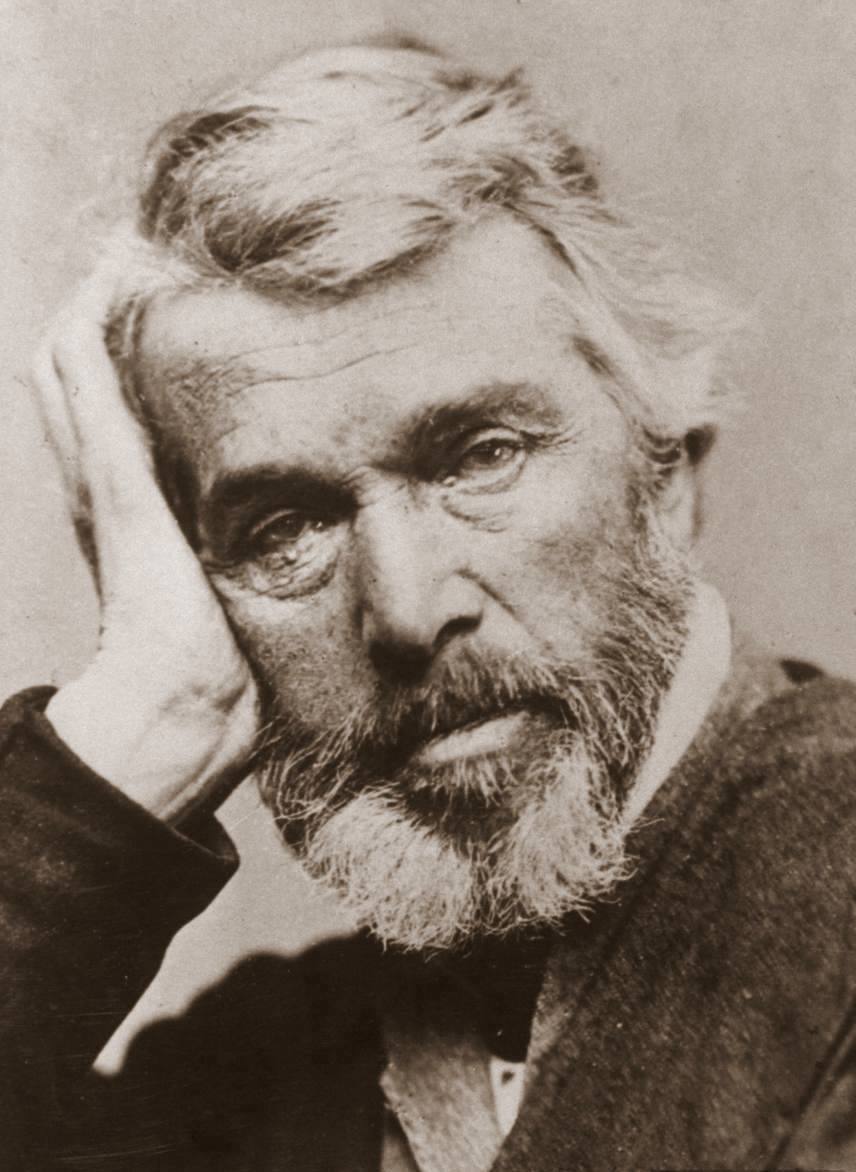On Napoleon; Carlyle in his essay on Mirabeau, 1837, quotes this from a "New England book".
1830s, Sir Walter Scott (1838)
Thomas Carlyle Quotes
On History.
1820s, Critical and Miscellaneous Essays (1827–1855)
Variant: What is all Knowledge too, but recorded Experience, and a product of History; of which, therefore, Reasoning and Belief, no less than Action and Passion, are essential materials.
1850s, Latter-Day Pamphlets (1850), The Present Time (February 1, 1850)
“The history of the world is but the biography of great men.”
1840s, Heroes and Hero-Worship (1840), The Hero as Divinity
“Literature is the Thought of thinking Souls.”
1830s, Sir Walter Scott (1838)
1840s, Heroes and Hero-Worship (1840), The Hero as Poet
“There is endless merit in a man's knowing when to have done.”
Dr. Francia (1845).
1820s, Critical and Miscellaneous Essays (1827–1855)
1830s, Boswell's Life of Johnson (1832)
1850s, Latter-Day Pamphlets (1850), Stump Orator (May 1, 1850)
1840s, Past and Present (1843)
“Every noble crown is, and on earth will forever be, a crown of thorns.”
Bk. III, ch. 7.
1840s, Past and Present (1843)
1840s, Past and Present (1843)
1840s, Heroes and Hero-Worship (1840), The Hero as Prophet
“"Schiller", first published in Fraser's Magazine”
1831
1820s, Critical and Miscellaneous Essays (1827–1855)
1840s, Past and Present (1843)
1840s, Heroes and Hero-Worship (1840), The Hero as Prophet
1850s, Latter-Day Pamphlets (1850), The Present Time (February 1, 1850)
1840s, Past and Present (1843)
1840s, Heroes and Hero-Worship (1840), The Hero as Prophet
1840s, Heroes and Hero-Worship (1840), The Hero as Divinity
Bk. I, ch. 3.
1840s, Past and Present (1843)
1840s, Heroes and Hero-Worship (1840), The Hero as Poet
1840s, Heroes and Hero-Worship (1840), The Hero as Poet
1840s, Heroes and Hero-Worship (1840), The Hero As King
1840s, Heroes and Hero-Worship (1840), The Hero as Poet
1840s, Heroes and Hero-Worship (1840), The Hero as Poet
“Certainly the Art of Writing is the most miraculous of all things man has devised.”
1840s, Heroes and Hero-Worship (1840), The Hero as Man of Letters
1840s, Heroes and Hero-Worship (1840), The Hero as Man of Letters
1840s, Past and Present (1843)
1840s, Heroes and Hero-Worship (1840), The Hero as Priest
1840s, Heroes and Hero-Worship (1840), The Hero as Man of Letters
“A man perfects himself by work much more than by reading.”
1860s, On The Choice Of Books (1866)
“That there should one Man die ignorant who had capacity for Knowledge, this I call a tragedy.”
Bk. III, ch. 4.
1830s, Sartor Resartus (1833–1834)
1840s, Heroes and Hero-Worship (1840), The Hero as Poet
“Literary men are…a perpetual priesthood.”
The State of German Literature.
1820s, Critical and Miscellaneous Essays (1827–1855)
1850s, Latter-Day Pamphlets (1850), Downing Street (April 1, 1850)
1840s, Heroes and Hero-Worship (1840), The Hero as Prophet
“The stupendous Fourth Estate, whose wide world-embracing influences what eye can take in?”
1830s, Boswell's Life of Johnson (1832)
“The English are a dumb people. They can do great acts, but not describe them.”
Bk. III, ch. 5.
1840s, Past and Present (1843)
1850s, Latter-Day Pamphlets (1850), Downing Street (April 1, 1850)
Quoted by Emma Goldman in her essay, "Patriotism: A Menace to Liberty", chapter five of Anarchism and Other Essays (2nd revised edition, 1911).
Attributed
1840s, Heroes and Hero-Worship (1840), The Hero as Divinity
1840s, Heroes and Hero-Worship (1840), The Hero as Priest
Address as Lord Rector of Edinburgh University, (April 2, 1866), reported in A dictionary of quotations in prose, edited by A. L. Ward (1889).
Attributed
Latter Day Pamphlets http://www.ecn.bris.ac.uk/het/carlyle/latter.htm, No. 1 (1850).
1850s
